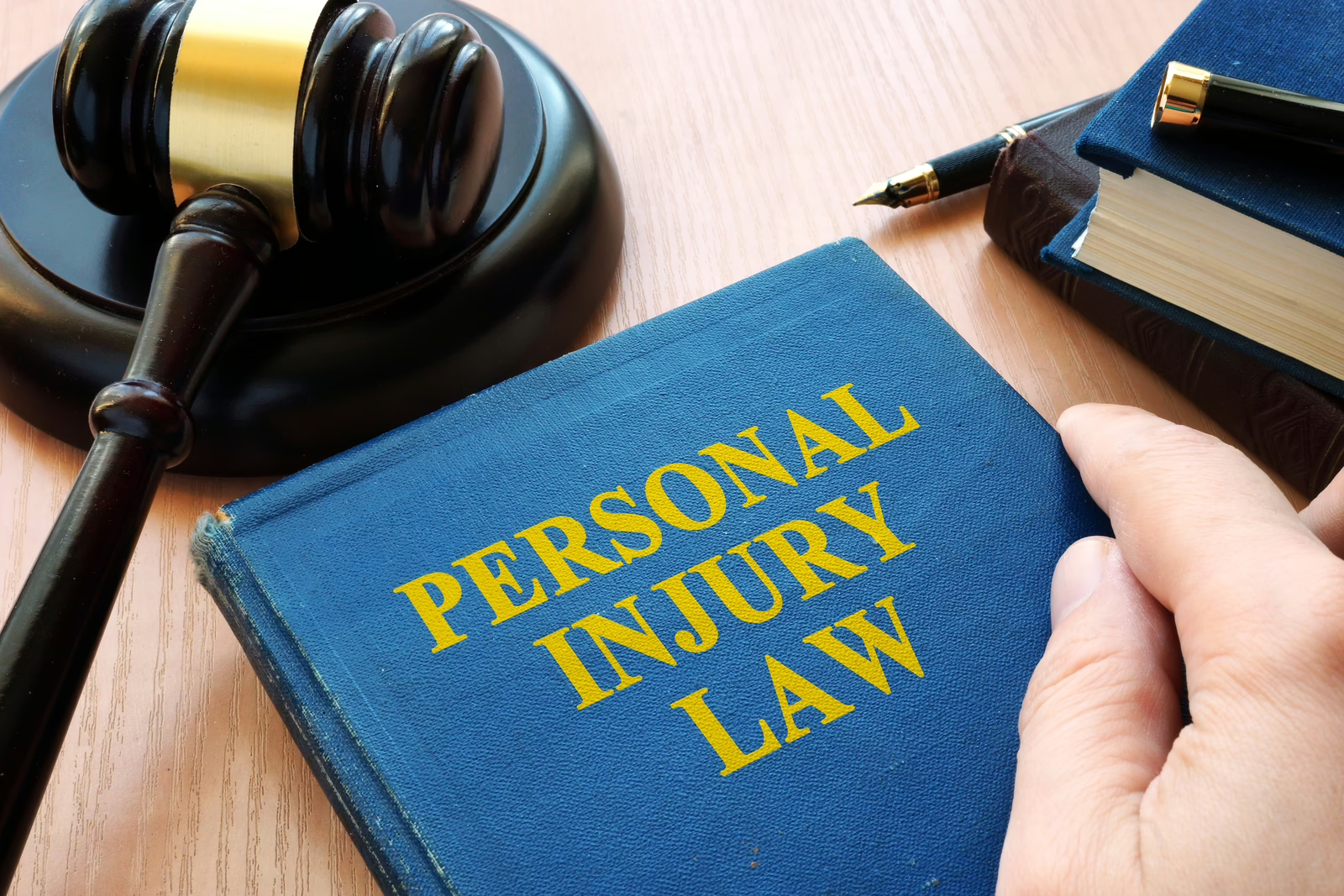RTRLAW’s Definitive Guide to Personal Injury Law in Texas
Each year, thousands of Texans suffer injuries due to the carelessness or wrongful actions of others. These injuries can result in physical pain, emotional distress, and overwhelming financial burden. The period following a personal injury can be filled with uncertainty as victims struggle with medical bills, lost wages, and negotiations with insurance companies that rarely have their best interests in mind.
At RTRLAW, we understand these challenges, and our goal is to help. Our experienced Texas personal injury attorneys are dedicated to fighting for your rights and securing the compensation you deserve. This guide provides an overview of Texas personal injury law, including your legal rights, potential damages, and what to expect during the claims process.
What Is Personal Injury Law?
Personal injury law is a legal area that allows individuals negatively impacted by another party’s negligence or intentional actions to seek compensation. Unlike criminal cases, which involve prosecution by the government, personal injury claims are civil lawsuits in which an injured person (plaintiff) seeks financial recovery from the responsible party (defendant).
Common types of personal injury cases include:
- Car accidents
- Truck collisions
- Motorcycle wrecks
- Workplace injuries
- Slip-and-fall incidents
- Product liability claims
- Food poisoning cases
- Bed bug bites
- Dog bites
- Medical malpractice
- Assault and negligent security cases
- Wrongful death
Each case is unique, and Texas law provides specific legal avenues for victims to pursue fair compensation for those various types of cases.
Candice Angell
We would like to recognize Shaun Serelson and staff at RTRLAW for their outstanding pursuit to achieve the best possible outcome for my husband’s auto accident.
What Does a Texas Personal Injury Attorney Do?
Personal injury attorneys advocate for individuals who have suffered harm due to negligence or misconduct. From the moment you obtain legal representation, a skilled lawyer will take proactive steps to protect your rights and build a strong case.
Key Responsibilities of a Personal Injury Lawyer:
- Gathering evidence: Attorneys collect photos, witness statements, medical reports, and police records to establish fault.
- Handling negotiations: Lawyers communicate with insurance companies to seek maximum compensation for their clients.
- Representing clients in court: If a fair settlement cannot be reached, the attorney will file a lawsuit and represent you at trial.
- Ensuring compliance with Texas laws: Navigating legal complexities, including deadlines and procedural requirements, is crucial for a successful claim.
Hiring an knowlegable injury attorney increases your chances of obtaining full compensation for your injuries and losses.
What Are The Key Texas Laws That Impact Personal Injury Claims?
Texas personal injury cases are governed by the Texas Civil Practice and Remedies Code, which outlines key legal principles such as negligence, liability, damages, and deadlines.
Negligence and Duty of Care:
To succeed in a personal injury lawsuit, a plaintiff must prove that the defendant owed them a duty of care, breached that duty, and caused injury as a result of that breach.
For example:
- Drivers must obey traffic laws and drive responsibly to prevent accidents.
- Businesses must maintain reasonably safe premises and to warn of things that they knew or should have known of.
- Medical professionals must not deviate from the standard of care when treating patients.
A failure to uphold these responsibilities can lead to legal liability for any resulting injuries.
Additionally, you must prove that you suffered damages as a result of that injury and breach. Breach and injury alone is not sufficient for a recovery. Hence, why we want our clients to get treated. You can be injured, not get any treatment, and not receive a recovery simply because you have no damages.
Texas’ Modified Comparative Negligence Rule Entail:
Texas follows a modified comparative negligence rule, meaning that if multiple parties contribute to an accident, liability is divided proportionally. If you are found partially responsible for your injuries, your compensation may be reduced by your percentage of fault.
For example:
- If you are 20% at fault in a car accident, and you are awarded $100,000, your final compensation would be $80,000.
- However, if you are 51% or more at fault, Texas law prohibits you from recovering any damages.
This rule makes legal representation essential, as insurance companies often try to shift blame onto you to reduce their payout.
Texas’ Statutes of Limitations for Personal Injury Cases:
Texas imposes strict time limits, known as the statute of limitations, on personal injury lawsuits. Failure to file within these deadlines can result in losing your right to compensation.
- General personal injury claims: 2 years
- Medical malpractice: 2 years
- Product liability: 2-15 years (depending on circumstances)
- Wrongful death: 2 years
- Claims involving minors: The statute of limitations may be “tolled” (paused) until the child turns 18.
Because exceptions may apply, consulting a personal injury attorney promptly ensures that you don’t miss your chance to file a claim.
What Types of Compensation Are Available For Texas Personal Injury Claims?
Victims of personal injury may recover different types of compensation, some of which include:
Economic Damages:
These compensate for tangible financial losses, such as:
- Medical bills (hospitalization, surgeries, rehabilitation)
- Lost wages due to inability to work
- Property damage (vehicle repairs, replacements)
- Future medical expenses for long-term care
Non-Economic Damages:
These compensate for intangible losses, such as:
- Pain and suffering
- Emotional distress (anxiety, depression, PTSD)
- Loss of enjoyment of life
- Scarring or disfigurement
Punitive Damages:
These are awarded in severe cases of reckless or malicious behavior. Punitive damages serve to punish wrongdoers and deter future misconduct.
What Steps Should You Take After a Personal Injury in Texas?
If you’ve been injured, following these steps can strengthen your claim:
- Seek medical attention: Your health comes first. Get treatment and follow doctor recommendations.
- Report the incident: Notify the police, property owner, or employer, depending on the accident type.
- Gather evidence: Take photos, obtain witness statements, and save receipts.
- Avoid speaking with insurance adjusters: They often attempt to minimize your settlement.
- Contact a personal injury lawyer: Legal guidance helps maximize your compensation.
At RTRLAW, we fight for the rights of injury victims across Texas. Our skilled attorneys handle every aspect of your case, from evidence collection to settlement negotiations, and, if necessary, trial representation.
If you or a loved one has been injured in Houston, Garland, or anywhere in Texas, don’t navigate the legal system alone. RTRLAW is here to help you seek justice.
Call 972-478-1801 for a free consultation or visit our website to learn more about how we can assist you in your personal injury case.
Revision History:
- Feb 12, 2026 at 3:33 pm by Nicholas Thompson (displayed above)
- Feb 12, 2026 at 2:34 pm by victor


 CALL US NOW
CALL US NOW TEXT US NOW
TEXT US NOW































